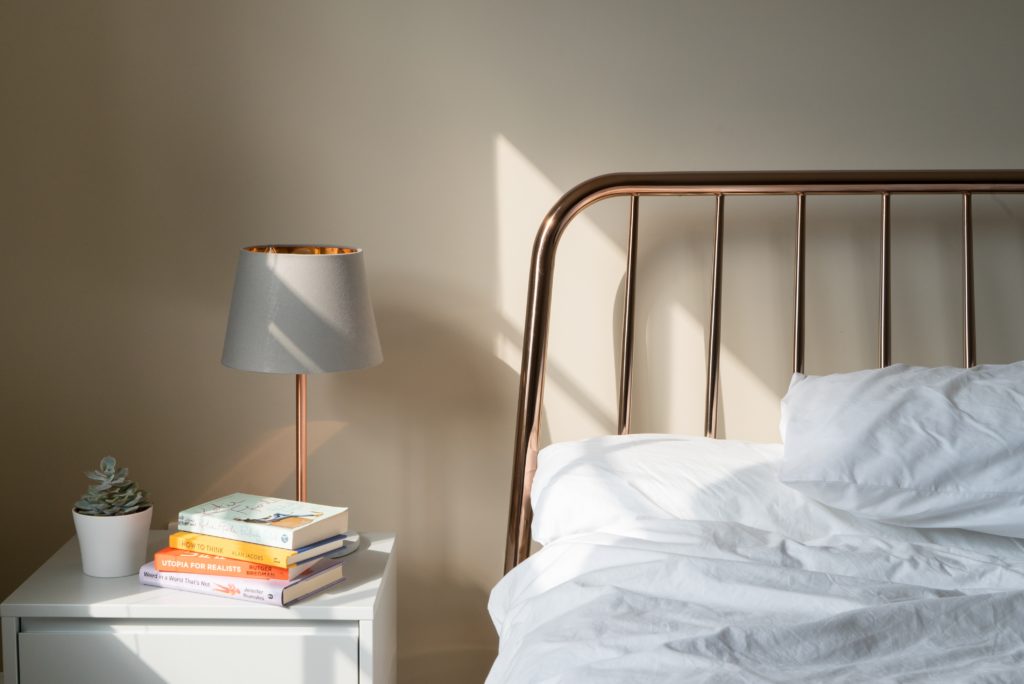8 simple steps that will immediately improve your night’s sleep
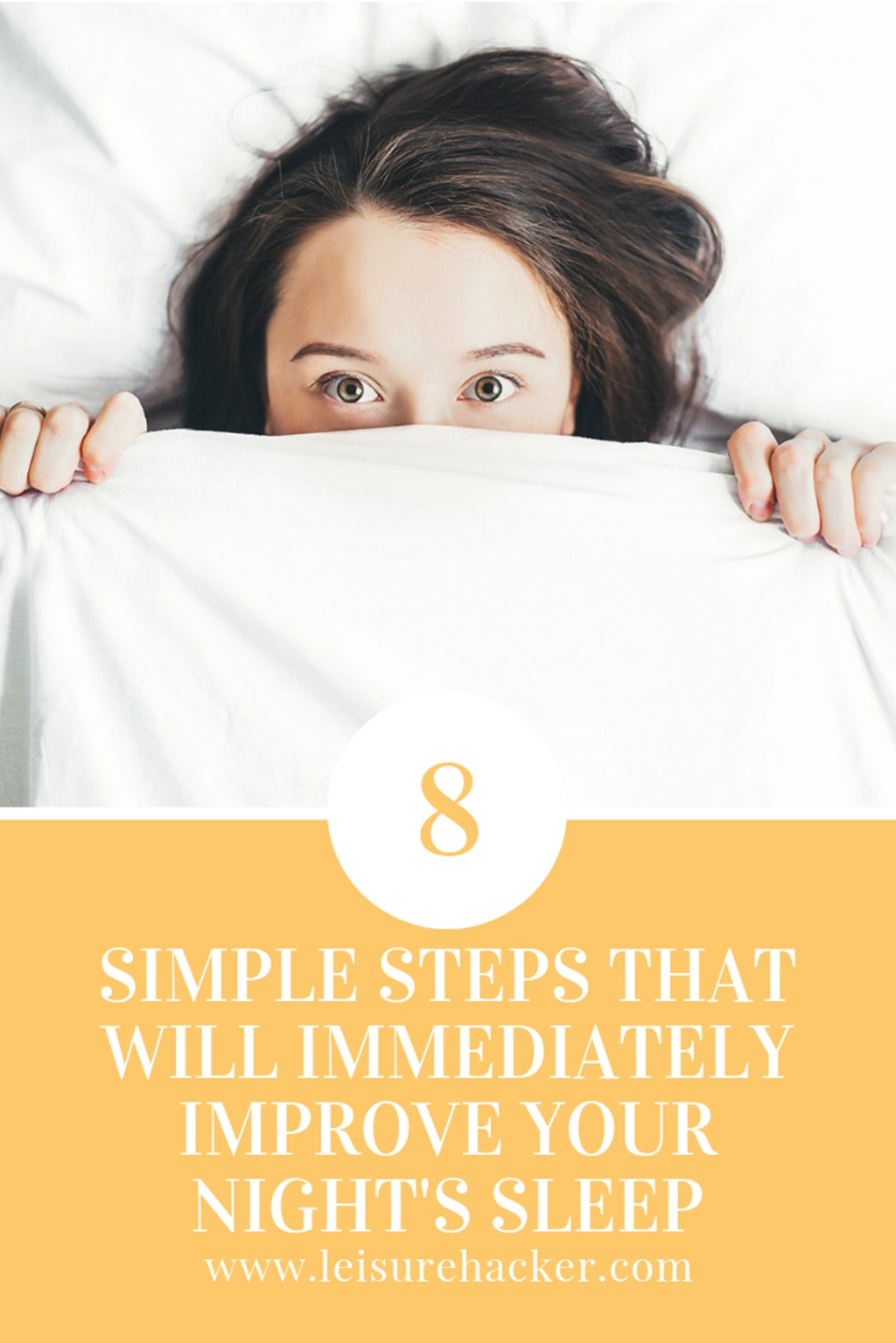
October 5, 2018
Sleep deprivation and a shortage of sleep can take a serious toll on our daytime energy. Stress levels, productivity, emotional balance, our mood and even our bodies all get affected by our sleep. So what can we do to improve our night’s sleep?

Our daily habits directly affect our sleeping quality and our sleeping quality directly affects our mental and physical health during our waking hours. It’s the chicken and the egg story all over again… So… are we doomed to be tossing and turning every night? No no no.
While we might not be able to control ALL the factors that interfere with our beauty sleep, we can make some small changes in our lives during the day that will make it easier for us to sleep better during the night.
So how can you get a better night’s sleep? Start with these simple tips:
1. Stick to a sleep schedule
Try to go to sleep and get up at the same time every day. Studies show that we should aim for seven to nine hours of sleep each night.
Getting in sync with your body’s natural sleep-wake cycle is one of the most important strategies for sleeping better. So try being consistent even on weekends, or least keep the difference to no more than one hour. This helps to regulate your body’s clock and optimize your sleep.
Tip: Choose a bedtime when you normally feel tired, so that you don’t toss and turn. If you’re getting enough sleep, you should wake up naturally without an alarm. If you need an alarm clock, you may need an earlier bedtime.
2. Be a cautious napper
If you need to make up for a late night of partying (oh yeah….), try a daytime nap rather than sleeping in. This allows you to win back the lost hours without disturbing your natural sleep-wake rhythm.
But! Be smart about napping. While napping is a good way to make up for lost sleep and a pleasurable experience in general, if you have trouble falling asleep at night, napping can make things worse. Try to limit yourself to up to 30 minutes and avoid doing so late in the day.
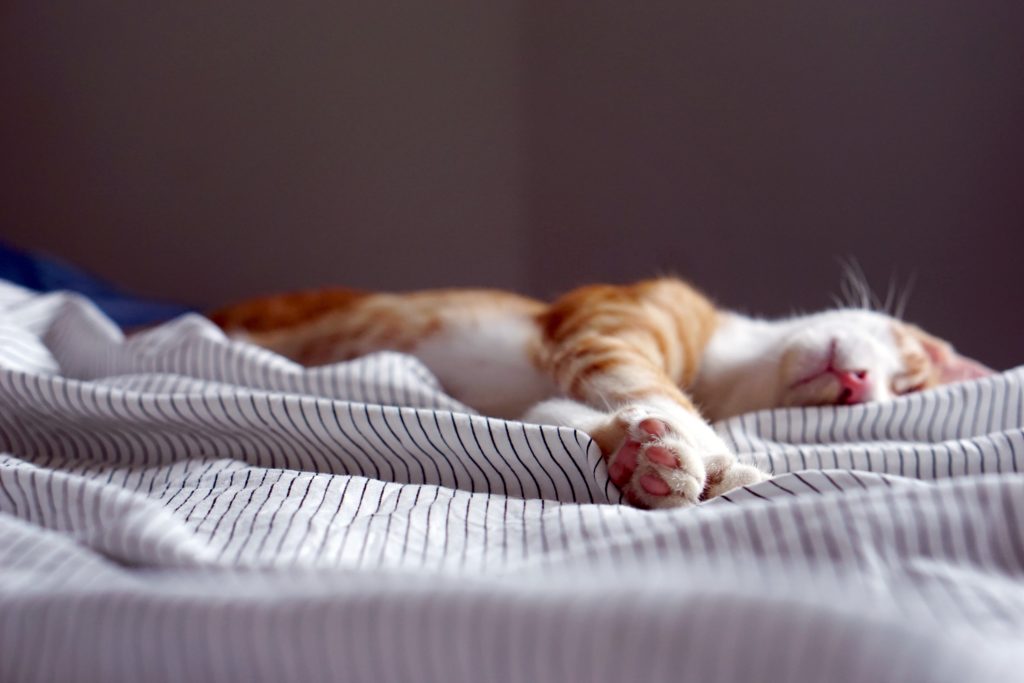
3. Create a sleep worthy environment
Design your bedroom to fit best to all you sleeping needs – keep in mind light, noise and temperature. Your room should be tall, dark and handsome or at least cool, dark and quiet. Handsome is a definite plus.
Just chill
Your bedroom should be cool when the ideal is 15–23°C (60–75°F) but could vary from person to person. Try and find the temperature that works best for you.
In the dark
Exposure to light might make it more challenging to fall asleep. And of course, try to avoid prolonged exposure to lighting from screens (Might work if you’re not an addict like me… Ugh).
Tune it down
Your bedroom should be noise free as possible (including your partner’s snoring of course).
Tip: Consider using room-darkening shades, blackout curtains, eye shades, earplugs, a fan or any other solutions that will help you create the perfect environment.
Snuggle up
Notably, sleeping on a comfortable & supportive mattress and pillows is important but don’t forget your sheets! There is nothing more tempting to go into bed with than a set of snugly, comfy soft sheets. Lately, I’ve been obsessed with T-Shirt Soft Jersey sheets (You can find them in almost every bedding store nowadays). Just make sure you make your bed in the morning.
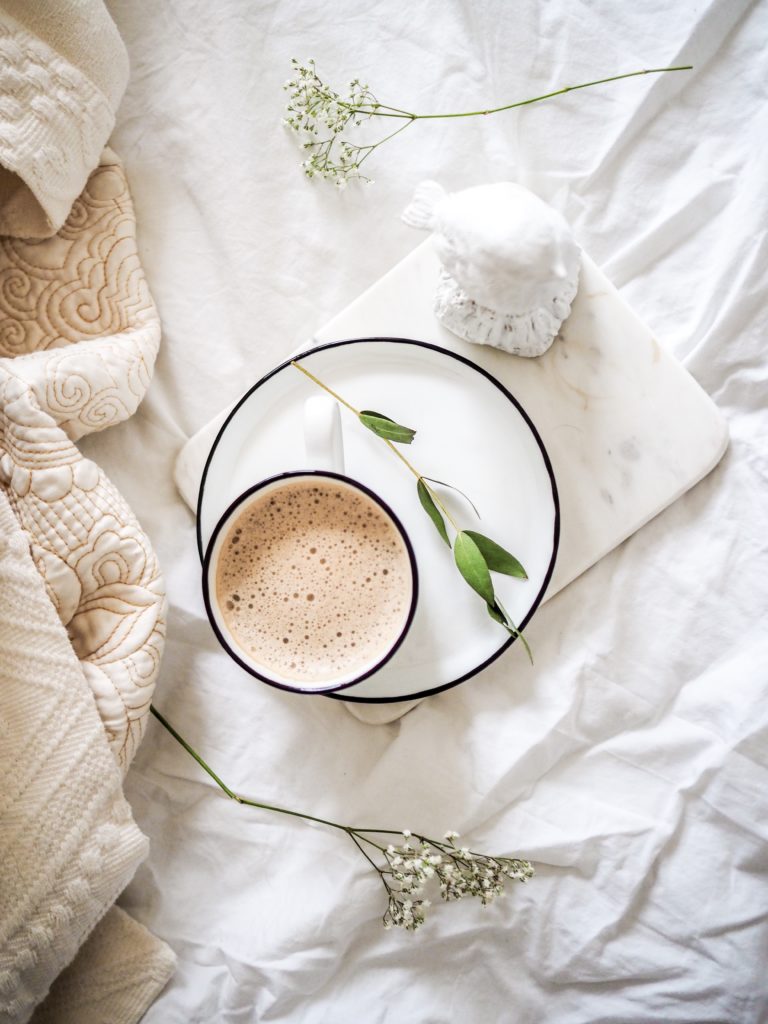
4. Watch what you eat and drink
Try not going to bed hungry or super full.
Be cautious about your caffeine, nicotine, alcohol and sugary foods intake (in general) but especially when it comes to your bedtime. Their stimulating effects could last for hours and interfere with your natural sleep cycle. Also, watch out for Spicy or acidic foods that can cause stomach trouble and heartburn.
Tip: although water is good for you, try to avoid drinking too much water before going to bed. You don’t want to get up to the bathroom 10 times a night (at least not for the next 40 years or so…)
Try consuming foods rich with magnesium such as pumpkin seeds, spinach, bananas or take a magnesium supplement as research suggests magnesium is important in our ability to sleep through the night.
Also, try a cup of chamomile tea. It can reduce anxiety and allow you to sleep better.
Tip: Finish eating at least an hour or two before bed.
5. Exercise during the day
Regular physical activity can help you sleep better. Vigorous exercise is the best, but even light exercise—such as walking for just 10 minutes a day—improves sleep quality.
Tip: Avoid being active too close to bedtime as exercise speeds up your metabolism, elevates body temperature, and stimulates hormones such as cortisol.
6. Enhance your natural melatonin production.
A key factor in how we sleep is regulated is exposure to light or to darkness. Melatonin is a natural hormone made by our body to help regulate our sleep cycles. You can make more by increasing your exposure to natural sunlight during the day and avoiding bright lights at night.
Want more? try ‘Top 10 Natural Ways to Increase your Melatonin Levels’
7. Relax before bedtime
The faster your brain goes during the day, the harder it can be to slow down at night. Try to create a relaxing down time before going to sleep. No electronic devices like TVs, laptop computers etc. (No, no Instagram-ing before you fall asleep). Try to read for 10-15 min or listen to soft music.
Tip: Taking a warm shower before going to bed could also help. As your body cools down it sends a signal to your brain to go to sleep.
8. Manage worries during daytime
Try to reduce your stress levels before bedtime. Yes, yes I know – easier said than done… I said try… But all the thoughts, stress, worries that go inside your head during the day can make it very difficult to fall asleep at night.
I read this book once that said that it’s not the “not falling asleep” part that is the problem, it’s the “worrying over the inability to fall asleep” that is the real pickle. That ‘OMG I only have 5 hours before I need to be up’ stress only encourages our body to stay awake.
If you’re feeling anxious about a certain problem or came up with a kiss-ass idea during the night, write it down on a piece of paper. This way you can postpone dealing with it until the next day.
Tip: Don’t toss and turn. If you don’t fall asleep within about 20 minutes and counting sheep doesn’t help, get out of bed and try a relaxing activity like reading, listening to music, meditation or practice breathing exercises.
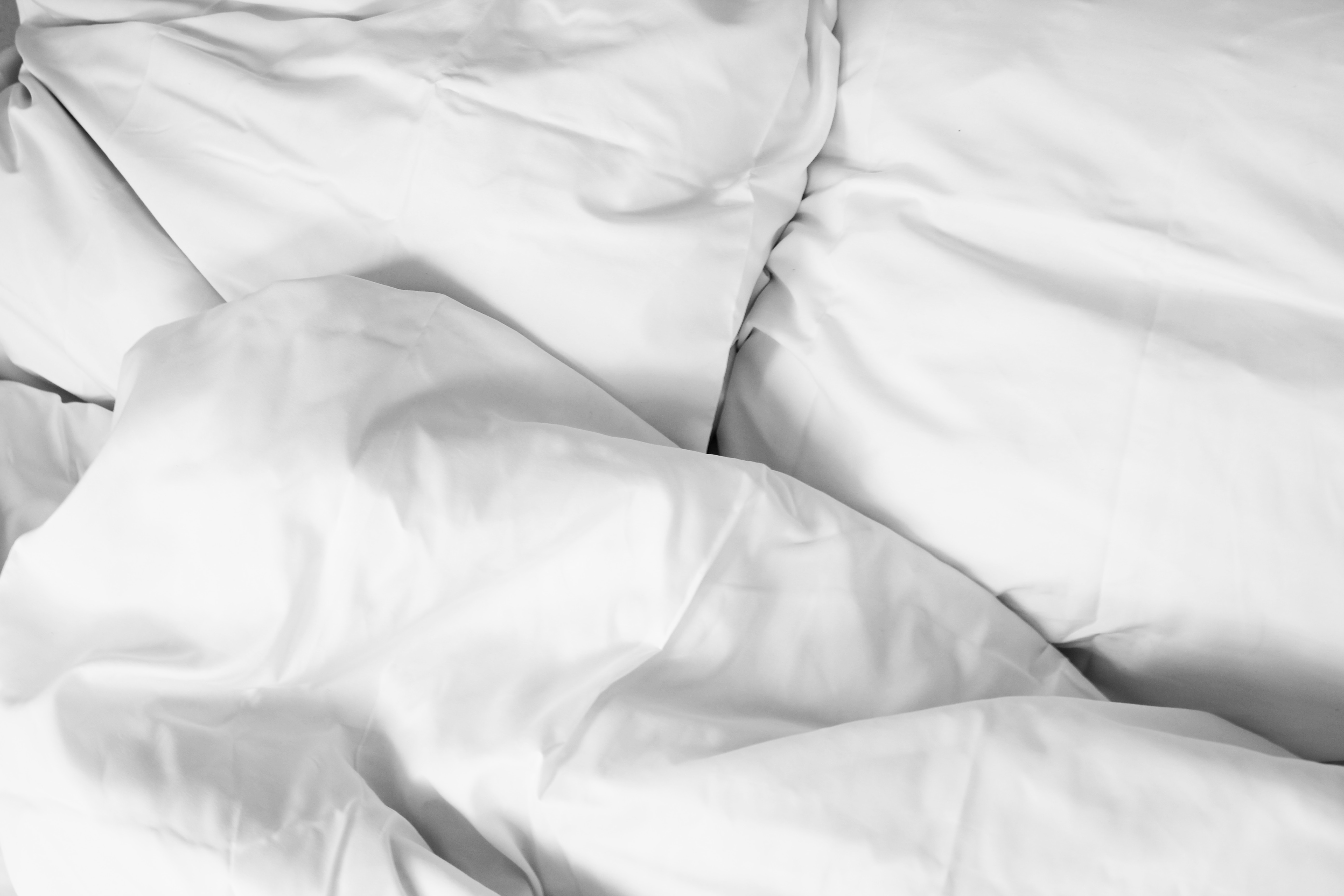
Final note: Know when to ask for help. We all have the occasional sleepless night or that stressful period in our lives that affect our nightly snooze. But if you find yourself having a chronic problem either contact your doctor or try reading a little bit more on stress management or reliving worries that might help.
Wishing us all a great night’s sleep and to all a good night….
Have some awesome bedtime tips? would love for you to share in the comments…
Leave a Reply Cancel reply
GYST
*
My 3-step formula to increase productivity, reduce stress, and create more balance in a busy world.
*Get Your Sh*t Together:
A FREE Guide to Organizing Your Life
Get the free guide now!
From Task Overwhelm To Effortlessly Efficient
THE 5-DAY PRODUCTIVITY CHALLENGE TO ORGANIZE & PRIORITIZE YOUR TASKS
TELL ME MORE!
Say Goodbye to 'Task Chaos' and the feeling of never truly getting ahead, and say Hello to a more organized, focused, and accomplished you!
